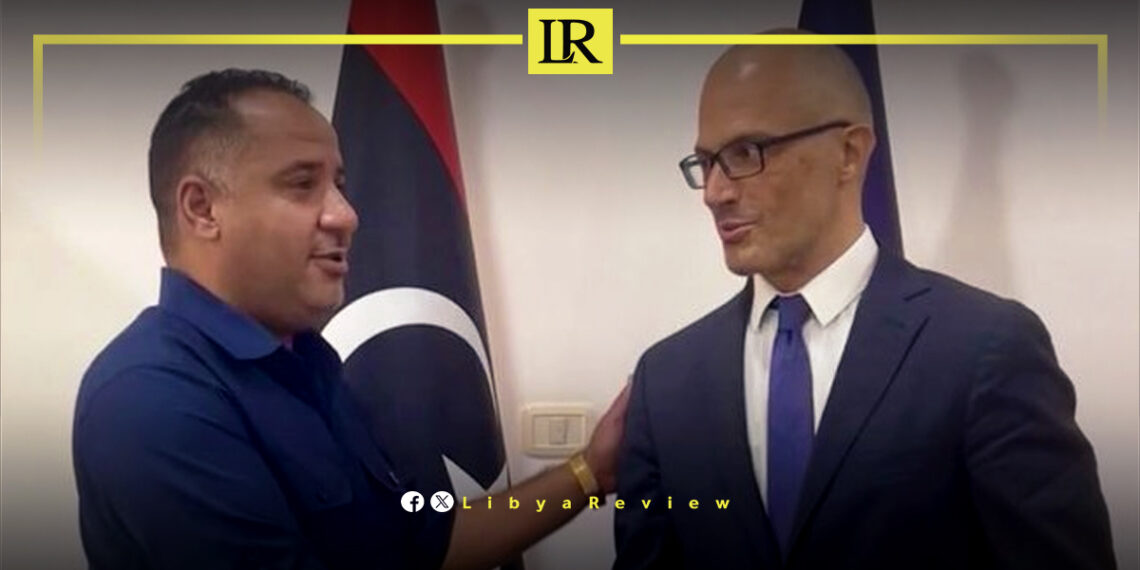On Monday, the European Union (EU) reaffirmed its strong backing for the United Nations (UN) efforts to move Libya’s stalled political process forward. In a meeting held in Tripoli, Nicola Orlando, the EU’s Head of Mission to Libya, met with Stephanie Khoury, Acting Head of the UN Support Mission in Libya (UNSMIL), to discuss the latest developments in Libya’s political and security landscape.
Orlando welcomed the recent progress made in resolving the leadership crisis at the Central Bank of Libya (CBL), noting that stabilizing the bank’s operations is crucial for economic recovery and political unity.
He emphasized the need for renewed UN-facilitated efforts to maintain unity within the High Council of State, a key institution in Libya’s transition. Orlando stressed that the council’s stability is essential to ensure a balanced political process that can lead to national elections.
The meeting also addressed the importance of dialogue and consensus among political stakeholders. Both Orlando and Khoury agreed that all parties must avoid unilateral actions that could derail progress and instead remain committed to inclusive dialogue to restore the legitimacy and unity of key institutions.
Orlando reaffirmed the EU’s unwavering support for the UN’s efforts to build an inclusive political process in Libya, one that addresses the root causes of the conflict and sets the stage for national elections. The goal, he emphasized, is to lay the foundation for a peaceful, unified Libya with functioning institutions that serve the needs of all citizens.
Libya has been grappling with political fragmentation for years, marked by competing governments and divided state institutions. The High Council of State and the House of Representatives—both central to the political process—have struggled to reach agreements on key issues, including electoral laws and institutional reforms.
These divisions have delayed national elections, leaving the country without a unified government and further exacerbating economic and social instability.


